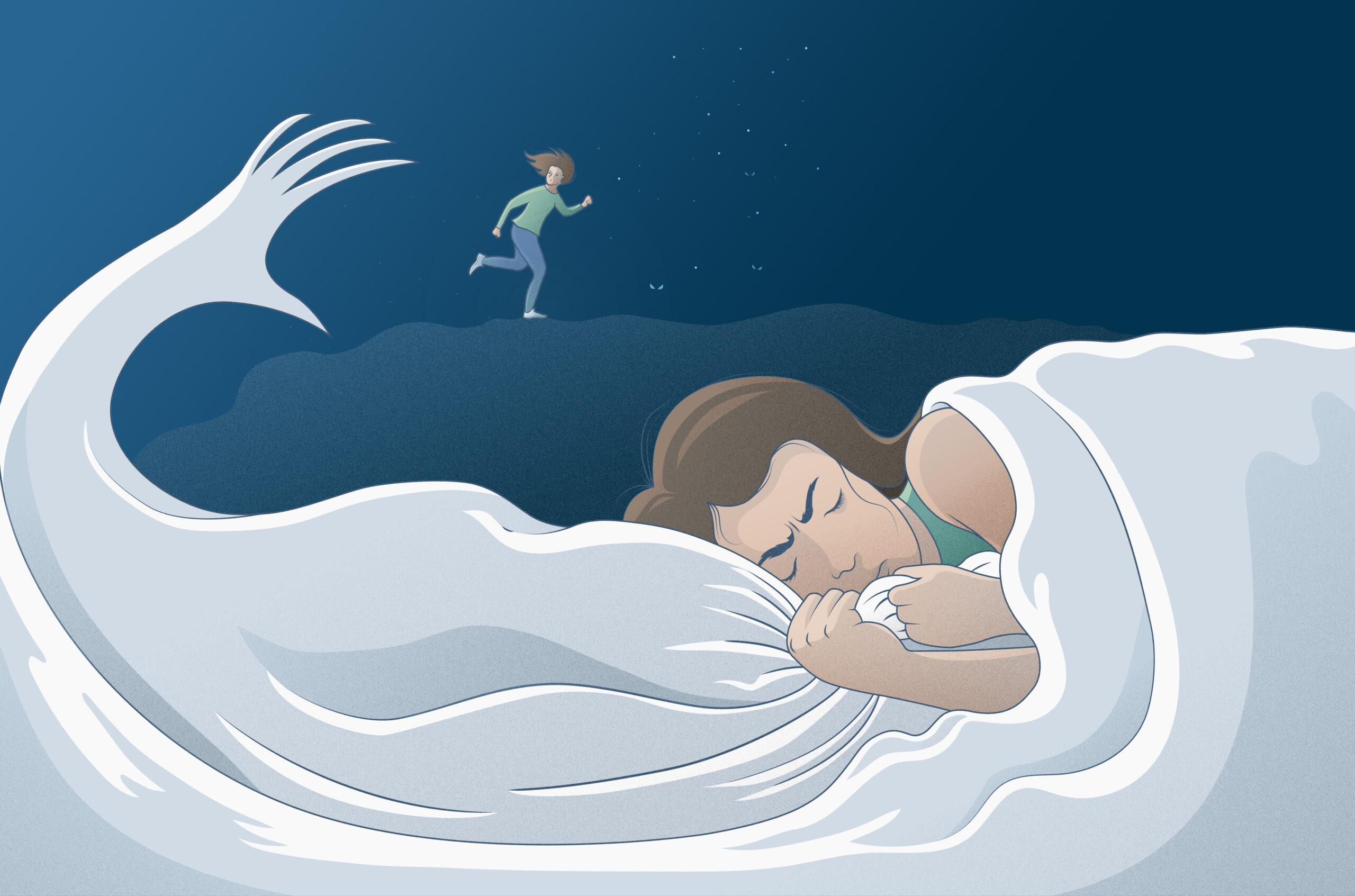Most people have bad dreams from time to time and move a little in their sleep, but being seriously affected by nightmares or REM sleep disorder is another matter entirely. If you find yourself afraid of going to sleep or if there’s a serious risk that you might hurt yourself or a loved one while you are asleep, it’s time to start looking for help. The good news is that most people can benefit from one of the following solutions.
Clonazepam
A benzodiazepine, this drug works by intensifying the degree to which your body relaxes during sleep. This means that you shouldn’t take it if you suffer from sleep apnea (struggling to breathe during sleep), and it shouldn’t be mixed with alcohol or drugs that also have a relaxing effect. It’s also a bad idea if you’re pregnant or breastfeeding. About 90% of people who do take it find that it helps, however, and only complain of a little drowsiness in the daytime – often a problem anyway if your sleep is being disrupted. It’s mildly addictive, but this isn’t usually a problem with short courses, which are all most people need.
Prazosin
This drug works by relaxing blood vessels, improving your circulation, and helping your body to carry out its natural functions while you sleep. It’s unsuitable for use in elderly people, and it can cause intestinal discomfort, while some people experience dizziness while they’re taking it. Although they still don’t really know why, researchers have found that it is particularly helpful in stopping nightmares related to post-traumatic stress disorder (PTSD).
CBD
If you prefer a natural approach, it’s worth thinking about CBD oil, which is safe for most people to take (check with your doctor if you’re unsure) and has far fewer side effects than most synthetic treatments. Although it can cause drowsiness in the daytime, this can usually be avoided by adjusting the dose and taking it right before bedtime. It has a naturally calming and relaxing effect on the body, and though the best CBD tincture for sleep varies a little from person to person, it’s easy to experiment because you’ll suffer no ill effects from using different varieties on different nights. You may also find that it helps you to feel less stressed when you’re awake.
Behavioral therapy
In some cases, nightmares and even REM sleep disorder have deep underlying causes that need to be addressed with behavioral therapy in order to reduce the risk of the problem recurring. There are specialized forms of cognitive behavioral therapy (CBT) that are designed to tackle both these types of problem. Taking the right mental steps before going to sleep can help, as can learning lucid dreaming techniques, which enable you to take control of your dreams while they’re happening and steer them in a safer direction.
Although they might not make your problems go away completely, all of these approaches can improve your chances of getting a relaxing night’s sleep and feeling that you can once again look forward to bedtime at the end of a long day.

Leave a Reply